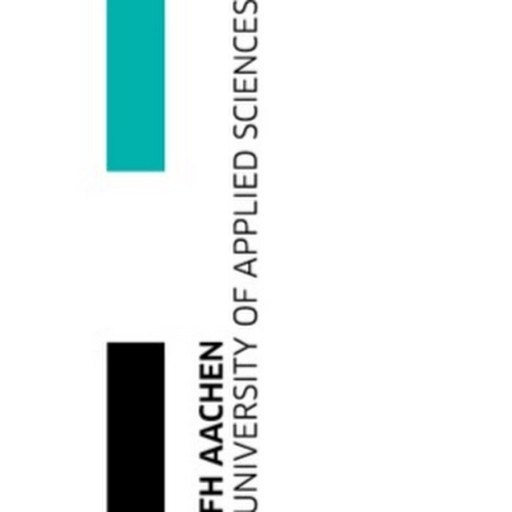Photos of university / #ouranu
The Master of Nuclear Science (Advanced) at the Australian National University offers a comprehensive and rigorous curriculum designed to equip students with in-depth knowledge and specialized skills in nuclear science and technology. This program is tailored for individuals seeking to advance their careers in the nuclear industry, research institutions, or regulatory agencies, as well as for those aspiring to contribute to cutting-edge developments in nuclear energy, medical applications, and environmental monitoring. The coursework encompasses a wide range of topics, including nuclear physics, reactor theory, radiation safety, nuclear materials, and nuclear instrumentation. Students will engage in both theoretical studies and practical laboratory work, gaining hands-on experience in state-of-the-art facilities. The program emphasizes the application of scientific principles to solve real-world problems, fostering analytical thinking and innovation. Throughout their studies, students have opportunities to participate in research projects under the guidance of leading experts in the field, contributing to advancements in nuclear science. The program is designed to prepare graduates for leadership roles in the sector, with a strong emphasis on safety, ethical considerations, and sustainable practices. Interdisciplinary collaboration is encouraged, allowing students to explore connections between nuclear science and environmental issues, medicine, and energy production. Upon completion, graduates will possess a sophisticated understanding of nuclear processes and the regulatory frameworks governing the industry. They will be well-positioned to pursue careers in nuclear research, policy development, technical consultancy, or further academic research. The Master of Nuclear Science (Advanced) reflects the ANU’s commitment to excellence in science education, research innovation, and societal impact.
The Nuclear Science (Advanced) program at the Australian National University offers students a comprehensive and in-depth educational experience in the field of nuclear physics and its applications. Designed for students with a solid foundation in physics and mathematics, this program provides advanced coursework that explores the principles of nuclear reactions, radiological safety, and nuclear engineering. Throughout the program, students engage with both theoretical concepts and practical skills, preparing them for careers in research, industry, or academia.
The curriculum covers key topics such as nuclear structure, nuclear reactions and their mechanisms, radiation detection and measurement, nuclear instrumentation, and the applications of nuclear technologies in medicine, energy, and environmental management. Students also gain knowledge about nuclear safety, radiation protection standards, and regulatory frameworks governing nuclear activities. The program emphasizes research skills, critical thinking, and problem-solving, enabling students to undertake independent research projects, lab work, and simulations.
In addition to core courses, students have the opportunity to participate in specialized electives and research projects under the guidance of leading experts in the field. The program fosters a collaborative learning environment, encouraging interaction between students, lecturers, and industry professionals. This prepares graduates to contribute effectively to advancements in nuclear science and related fields, including nuclear power generation, medical imaging, and nuclear policy.
Graduates of the Nuclear Science (Advanced) program will possess a thorough understanding of nuclear processes and their applications, along with the technical and analytical skills necessary for employment in scientific research, government agencies, or private sector companies involved in nuclear technology. The program's combination of rigorous coursework, research opportunities, and industry engagement aims to equip students with the knowledge and experience required to excel in a dynamic and evolving industry.
A bachelor degree or an international equivalent with GPA of 5.5/7.0 sufficient reason for at least 8 cognate subjects in Physics/Engineering.
The Australian National University offers diverse financing options for students enrolled in the Nuclear Science (Advanced) program to support their academic pursuits and alleviate financial burdens. Tuition fees are determined annually and vary depending on the student's residency status, with domestic students benefiting from subsidized rates under government schemes such as HECS-HELP, and international students paying full fees. Domestic students typically enroll under programs that allow them to defer payments through income-contingent loans, which are repaid once their income reaches a specified threshold. International students are required to pay upfront fees or arrange in advance through private financial arrangements.
In addition to tuition fees, the university provides scholarships and financial aid packages targeted specifically at students undertaking advanced studies in nuclear science. These scholarships may be merit-based, need-based, or targeted at students from particular backgrounds or regions. Examples include research scholarships, travel awards, and stipends that help cover living expenses. Applicants are encouraged to explore the university's scholarship database early, as competition can be significant.
Students can also access external funding sources such as government research grants, professional industry sponsorship, and fellowships offered by nuclear science and engineering organizations. The Australian government supports higher degree research students through various grants, and those involved in research projects may obtain additional funding through collaborative industry partnerships or national research initiatives.
The university also offers flexible financial planning options, including payment plans and installments, to help students manage their expenses over the course of their studies. Many students combine multiple funding streams, including personal savings, family support, and external employment opportunities, to finance their education. The ANU’s comprehensive financial services team provides advice and assistance in exploring these options.
In summary, students enrolled in the Nuclear Science (Advanced) program at ANU have access to a range of financial resources, including government subsidies, university scholarships, external funding, and flexible payment options. Prospective students are advised to thoroughly research and apply early for scholarships and assess their eligibility for government assistance programs to ensure comprehensive financial planning for their studies.
The Nuclear Science (Advanced) program at the Australian National University is a postgraduate degree designed for students seeking in-depth knowledge and specialized skills in the field of nuclear science. This program provides comprehensive coverage of nuclear physics, radiation physics, nuclear engineering, and applications of nuclear technology in various sectors, including medicine, energy, and industry. It aims to equip students with both theoretical understanding and practical expertise, preparing them for careers in research, industry, or further academic pursuits. The course structure typically includes core subjects on nuclear fundamentals, radiation safety, nuclear instrumentation, and advanced topics such as nuclear reactor technology and nuclear safeguards. Additionally, students may have opportunities to engage in laboratory work, research projects, and potentially internships in related industries or research facilities. The program is suitable for students with a background in physics, engineering, or a related scientific discipline, and it emphasizes the development of analytical skills, problem-solving abilities, and the capacity to handle complex technical issues associated with nuclear science. Graduates of this program are well-positioned to work in nuclear power generation, medical physics, national laboratories, or regulatory agencies. The Australian National University’s state-of-the-art facilities and access to leading experts in the field support an enriching educational experience. The program is generally delivered over one to two years, depending on whether students undertake coursework-only, research, or combined options. Admission requirements include relevant academic qualifications, such as a bachelor’s degree in a related field, and possibly relevant work experience. Completion of this degree can open pathways to advanced research opportunities, roles in governmental or international nuclear organizations, or specialized consultancy positions. The curriculum is regularly updated to reflect the latest developments in nuclear science and safety standards, ensuring that graduates are prepared for the current and future challenges of the industry. The ANU’s reputation for excellence in science and research, combined with its strategic partnerships with industry and government, makes this program highly attractive for those wishing to advance their careers in nuclear science and technology.









